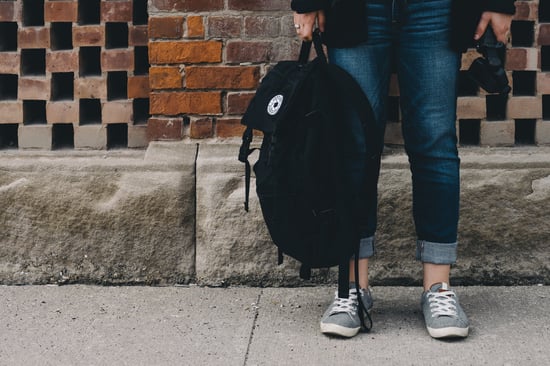Feelings of excitement and relief are common for students on the last day of school. High school students exhale sighs of relief when they hear the last bell of the school year ring. Elementary students run to their parents with a sense of pride and accomplishment for finishing another year and knowing when they return they’ll move up in the school totem pole.
Yet, unfortunately that’s not the case for all students. For some students, fear, anxiety, social isolation, rejection, and mistreatment are what many students experience. When this is the case, the thought of returning or being at school creates an entirely different mix of feelings: sadness, anger, hopelessness, anxiety, depression. Students experience these feelings with such intensity that they are often debilitated and, as a result, can lead to school avoidance.
Summer break gives kids the time and space to mentally prepare themselves with self chatter such as, “I can do it! This year will be different. If I just go, it’ll be okay.” Parents become optimistic and start to believe their child will go to school this year. But unfortunately it’s not that easy. If it were, more kids would demonstrate the ability to manage the thoughts and feelings causing distress and discomfort leading to school avoidance.
When a child begins the pattern of school refusal and avoidance, it is confusing, frustrating, and oftentimes maddening for parents.
As a result, other patterns begin to form between the child and the parent which unbeknownst to parents can begin to form a different set of problems that leads to the complexities involved with school refusal and avoidance.
Feelings of distress and despair around school can be signs leading up to school refusal. It is not uncommon for students to dislike school but when they are chronically absent or finding excuses to avoid school, there might be a deeper issue present.
What Is School Refusal?
Dr. Jonathan Dalton, Ph.D., is a leading researcher of school refusal. He defines it as refusal to attend or difficulty remaining in school for an entire day. School refusal is more than truancy. Truant students brag to friends about skipping school, show no signs of emotional trauma around school, and typically skip school to engage in more desirable activities like playing video games or hanging out with friends.
School refusal is rooted in extreme stress, anxiety, fear, and depression. Dr. Mary Wimmer, Ph.D., says 2-5% of students refuse to attend school and miss weeks and/or months of school because of crippling anxieties and fears around school.
Symptoms of school refusal are:
- Anxiety
- Depression
- Fatigue
- Crying
- Somatic symptoms/ailments, such as, headaches and stomachaches that disappear when they are not in school
- Tantrums
- Noncompliance
- Running away from school or home
How It Develops
Separation anxiety, social anxiety, depression, bullying, and learning disabilities are the leading causes of school refusal. It can also be prompted by a death or illness in the family, entering kindergarten, transitioning from middle to high school, moving or changing schools, or other big events. Students want to avoid school-related issues that cause extraordinary stress such as peer interactions or academic evaluation.
Separation Anxiety
According to Dr. Jonathan Dalton, Ph.D., 38% of school refusal cases result from separation anxiety. Separation anxiety disorder is the fear of being alone, fear of abandonment, the worry of catastrophic events, and/or fear of physical illness. Separation anxiety is common for kindergarteners but when the problem persists for weeks and months, psychologists advise seeking help.
Social Anxiety
Social anxiety is a threat to one’s core sense of self. Dr. Mary Wimmer, Ph.D. states, “Students with social/performance anxiety worry about what others think, are concerned about how they will be judged, and fear humiliation. They may have intense anticipatory anxiety about giving speeches, taking tests, or participating in sports.”
Depression
12.8% of teens aged 12-17 reported at least one major depressive episode with more girls experiencing depression.
Learning Disability
Education can produce anxiety when a student has a learning disability. A learning disability can lead to a pairing of frustration with academic work. This aversive pairing leads to anxious apprehension which leads to avoidance and procrastination resulting in school refusal.
Bullying
Between 1 in 4 and 1 in 3 students have been bullied at school but less than half report incidents to parents, teachers, or school administrators. Children and teens feel helpless and fear retaliation if they speak up. Bullying can be humiliating so they become more isolated and feel like no one cares. While not all children exhibit warning signs of being bullied, signs a child is being bullied are:
- Unexplainable injuries
- Lost or destroyed possessions like a phone, clothing, jewelry
- School refusal
- Binge eating or skipping meals
- Trouble sleeping
- Declining grades
- Loss of friends
- Lower self-esteem
- Self-destructive behavior

When Is School Refusal A Serious Problem And Not Teens Being Teens
Parents do their best to accommodate their child’s fear and at times are tempted to let them skip school, thinking if they stay home today, tomorrow will be better for them. Allowing children to skip school has the potential to exacerbate the problem where one day turns into two, and two to three, and so on.
Some parents go as far as homeschooling their child or letting them take online courses to ensure they get a proper education. While an adolescent’s education is important for them to be successful, avoiding the problem at hand can lead to greater problems in their future. Their fear around school grows to make it even more difficult to go back when students avoid their anxiety rather than learn to manage it. While the concept of accommodation comes from a place of care, it makes the problem worse.
It is time to seek help when a student is missing 40% of their classes in a two-week period.
The cycle of avoidance will continue until a child learns how to manage their anxiety. Habitual school absence can have severe, long-term social and educational consequences, according to Dr. Mary Wimmer, Ph.D.
Working In The School And At Home
School refusal can cause serious problems for a child and their family. It can be difficult for a child to articulate the problem leading to the cycle of avoidance and increased anxiety. Schools can blame parents for their child’s chronic absence which creates even more stress. Equinox Counseling & Wellness Center believes in a comprehensive model of intense treatment.

We come from a family systems approach in which we work with the home, school, and in therapy with the child. We provide parent-coaching to help parents more effectively manage both their child’s emotional or mental health issues as well the behavioral aspect of school refusal. When we work with the schools, adolescents feel safe and cared for while they are learning coping skills to better manage their anxiety related to school. Kids get support through individual and group therapy. This comprehensive team approach ensures the best chances for success.







